Navigating the Marvel Cinematic Universe: Viewing Guide


Intro
The Marvel Cinematic Universe (MCU) has evolved over the years into a behemoth in the film industry, captivating audiences worldwide. Since the release of Iron Man in 2008, it has woven an intricate narrative web that connects characters and stories across multiple films and series. As fans dive deeper into this vast world, a common desire emerges: to fully grasp the chronological sequence and the rich tapestry of character arcs.
To help with this journey, this guide explores the MCU in detail, outlining both the movies and the series in a structured format. From significant characters to overarching themes, the goal is to provide a roadmap that not only enhances viewers' understanding but also enriches their experience as they navigate through each storyline. It's not just about watching the films - it's about understanding how every piece fits together to create a broader narrative.
The MCU's allure lies in its layered storytelling, which resists simple consumption. Engaging with these stories in the right order allows fans to appreciate the build-up of plotlines and the development of beloved characters effectively. Whether you're a newcomer—perhaps just embarking on this cinematic adventure—or someone looking to revisit these iconic tales, there's a wealth of information awaiting you.
"Understanding the Marvel Cinematic Universe is like piecing together a puzzle where each film and series adds a crucial element to the overall picture."
In this guide, let's take a deep dive into the Marvel cinematic landscape. We will discuss the interconnected storylines and chronological order, which will provide clarity on the MCU's complex universe.
Overview of the Marvel Cinematic Universe
The Marvel Cinematic Universe (MCU) stands as a significant cultural powerhouse within modern storytelling, captivating audiences around the globe over the past decade. Its coherent narrative structure has given rise to a sense of community among fans, transforming collective viewing into a shared experience that transcends mere entertainment. This overview serves as a foundational piece for newcomers and veterans alike, outlining the essence and broad significance of the MCU.
Origins of the MCU
The seeds of the MCU were planted way back in 2008 with the release of Iron Man. The bold vision of bringing comic book characters to life ignited an imaginative journey that evolved over multiple movies. Originally, Marvel faced an uphill battle, often underestimating the potential of their characters in a mainstream cinema landscape dominated by different genres. However, things took a turn, transitioning from individual trials to a tightly-knit cinematic tapestry. Marvel’s strategic planning allowed stronger characters to influence, reference, and drive each other's narratives, creating an interconnected web of stories.
Structure of the MCU
Understanding the MCU's structure is essential for navigating its extensive array of films and series. The organization of the MCU into phases allows viewers to contextualize stories by their release and development. Subsequently, this segmentation aids in piecing together character arcs and overarching narratives.
Phases of the MCU
The phases of the MCU illustrate a methodical approach to world-building. Each phase not only introduces new characters but also magnifies existing ones through evolving narratives. For instance, Phase One set the stage with character introductions, culminating in The Avengers, which tied individual stories together. Phase Two expanded further, introducing new heroes and creating more interconnections before leading into the climactic events of Phase Three.
This structure exemplifies a strategic choice, allowing viewers to witness character growth in a cohesive manner that ultimately satisfies curiosity and contributes to emotional investment in the storyline. By the time audiences reached Phase Three, they were already deeply rooted in the lives and challenges of the characters.
Standalone Films vs. Ensemble Films
The distinction between standalone films and ensemble films highlights a further layer of characterization and storytelling within the MCU. Standalone films often focus intently on the development of a single hero, providing background, motivations, and personal struggles. An excellent example is Black Panther, which showcases T'Challa’s journey, not just as a hero but as a sovereign king. This focused lens makes the character approachable, easy to root for, and contributes to a richer viewer experience.
On the other hand, ensemble films emphasize collaboration among various characters. This format allows for multi-narrative threads converging to tackle a larger threat. Avengers: Endgame encapsulates this with a plethora of characters coming together to confront a formidable foe, showcasing teamwork and sacrifice. While both formats offer unique storytelling advantages, having a balance allows for a diverse viewing experience that keeps audiences engaged.
Importance of a Watching Order
The Marvel Cinematic Universe (MCU) is a sprawling tapestry of superhero tales filled with intricate character arcs and interwoven storylines. For both casual viewers and die-hard fans, grasping the importance of a structured watching order can significantly enhance the viewing experience. It’s not just about watching a sequence of films; it’s about immersing oneself fully in a universe where every character, plot point, and emotional struggle is connected.
Understanding Character Arcs
Character arcs in the MCU are crucial for cultivating a deeper emotional connection with the audience. Each character’s journey is carefully plotted over several films and series. When viewed in a disjointed order, the nuances of these decisions and transformations get lost, diminishing their impact.
Take Tony Stark, for instance. His evolution from a self-centered billionaire to a selfless hero is a multilayered narrative. Watching his progression helps to appreciate the underlying themes of redemption and sacrifice. Similarly, the development of characters like Natasha Romanoff and Steve Rogers adds greater depth to the overarching story.
By seeing these arcs unfold as intended, viewers can witness the gradual shifts in relationships, motivations, and personal growth. The payoff is notably powerful during key moments, such as Stark’s sacrifice in "Avengers: Endgame." Understanding where each character is emotionally at any given point transforms these scenes from mere spectacle to heart-wrenching moments of storytelling brilliance.
Connecting Storylines
The interconnectedness of storylines is another vital aspect that underscores the need for a defined watching order. The MCU is designed like a web, where each film or series contributes to a larger narrative. Ignoring this linearity may lead to confusion about events, motivations, and alliances that occur across multiple entries.
For example, consider the relationship between the events of "Captain America: Civil War" and "Black Panther." The motivations behind T’Challa's actions and his eventual allies are seeded in the prior films. Without following the suggested watch order, a viewer may struggle to grasp the full significance of T’Challa’s experiences and decisions.
Moreover, post-credit scenes and Easter eggs, which have become a signature of the MCU, often set up future storylines or bring closure to existing ones. Watching out of order may mean that references and foreshadowing are overlooked, leading to a diluted understanding of the MCU's evolving narrative landscape.
"A story is only as strong as its weakest link; each film strengthens the whole when viewed in order."
By prioritizing a structured viewing approach, fans can not only appreciate the characters' individual journeys but also relish the rich intertextual dialogues that breathe life into the overall saga. Dismissing these connections risks reducing complex narratives into a series of disjointed episodes, rather than experiencing the artistry and craftsmanship at play within the Marvel Cinematic Universe.
Chronological Order of Marvel Films
In the vast universe of storytelling that is the Marvel Cinematic Universe (MCU), the chronological order of films serves not just as a mere timeline but as a framework that enriches the viewing experience. Understanding the correct sequence to watch these films allows viewers to appreciate character developments, plot twists, and thematic continuity in a way that lends clarity and depth. While some fans may happily hop from one film to another, the true essence of the MCU shines when watched in its intended order. This approach not only fosters a smoother narrative flow but also highlights connections between characters and events that may easily be overlooked otherwise.
Initiating Phase One
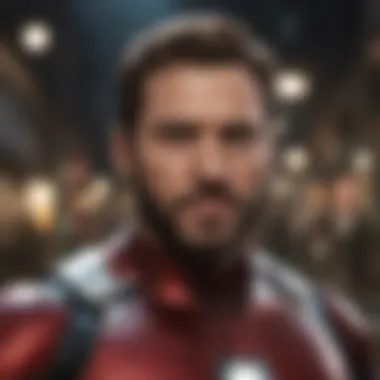
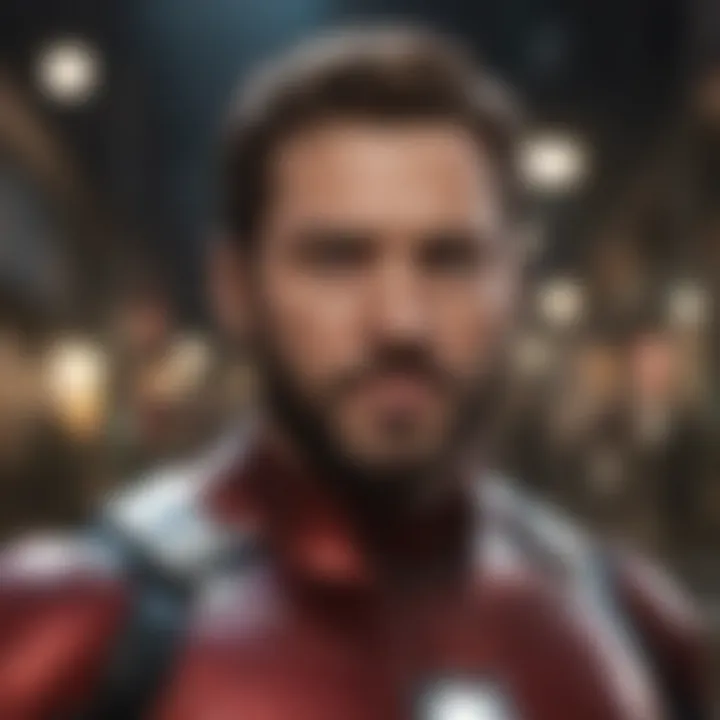
Comprising the initial phase of the MCU, Phase One sets the stage for a magnificent saga that introduces characters and storylines becoming essential to the overarching narrative. Here’s a closer look at these films, starting with the iconic ones that ushered in this cultural phenomenon.
Iron Man
With the debut of Iron Man in 2008, the MCU took its first bold steps into the cinematic realm. This film introduced Tony Stark – a billionaire with a flair for tech and a heart to match. What makes Iron Man notable is how it portrays Stark's transformation from a self-centered industrialist to a hero willing to sacrifice for the greater good. The unique aspect of Stark’s character arc, coupled with cutting-edge special effects and a snappy script, makes it a compelling starting point for both newcomers and veteran fans alike.
The film’s seamless blend of action and humor, combined with a strong central character, acts as a solid launchpad for understanding the interconnected universe that follows.
The Incredible Hulk
Following the success of Iron Man, The Incredible Hulk offered a different tone. While many focus on the action-packed visuals, its core themes relate to identity and the monstrous nature that resides within us all. This movie captures Bruce Banner's internal struggle with his dual nature – the scientist and the rage-fueled behemoth inside him. Despite being less central to the MCU's main plot, it’s crucial for understanding Banner’s journey. The unique feature here is its exploration of consequences tied to personal choices, creating layers of depth that enrich the entire saga.
Thor
Thor opens the door to a realm beyond Earth, introducing Asgard and its pantheon of gods. This film is significant for viewers as it expands the MCU’s boundaries beyond traditional superhero narratives. Thor’s character growth from a brash warrior to a humble hero willing to learn and adapt underscores an essential characteristic – redemption. The vivid visuals of Asgard add a fairy-tale quality wrapped in epic battles, laying groundwork for deeper cosmic narratives in later phases.
Despite its fantastical elements, it manages to tether itself to core themes of responsibility and sacrifice which resonate throughout the MCU.
Captain America: The First Avenger
In Captain America: The First Avenger, we witness the transformation of Steve Rogers, from a frail man to the super-soldier tasked with leading America's fight during World War II. This film sets up not only Rogers as a central hero but also touches on themes of loyalty and bravery. The way it grounds superheroics in real historical context gives viewers a relatable anchor amidst the fantastical might of Thor or the tech wonders of Iron Man. The vibrancy of its retro setting combined with Rogers' impeccable moral compass adds complexity and charm to this era of the MCU.
The Avengers
Culminating Phase One, The Avengers represents a groundbreaking moment in cinema. The convergence of all previous heroes builds high stakes for audiences who have followed their journeys thus far. This film highlights not just individual characters but also the power of teamwork. The expectation was notably high, and it managed to exceed them by weaving together the ensemble cast with both drama and comic relief. The iconic team formation, famously referred to as "the moment where heroes assemble," injects a sense of collective narrative that creates anticipation for future phases. Its unique highlight is the balance between various character arcs while honing in on the significance of unity in times of conflict.
Advancing to Phase Two
As we move into Phase Two, the MCU began to broaden its scope, introducing new characters and expanding the mythos established in the earlier films. Here's how these continuations and additions contribute to the universe.
Iron Man Three
Transitioning from the collective to a more personal storyline, Iron Man Three focuses on Tony Stark's psychological aftermath following the events of The Avengers. This film stands out by showcasing a more vulnerable side of Stark, diving into themes of trauma and recovery. It provides viewers a deeper understanding of his character, moving beyond just the flashy gadgets and heroics. This approach is refreshing and allows audiences to connect with Stark on a personal level, offering a blend of action and introspective storytelling that is characteristic of Phase Two.
Thor: The Dark World
Thor: The Dark World dives back into Asgard, exploring more intricate relationships and loyalties. While it may not have earned the same praise as its predecessor, it sets the stage for crucial future developments, particularly regarding the Infinity Stones. The unique feature here is the incorporation of darker tones alongside the fantastical elements, showing that even in a world of gods, personal loss can have profound impacts.
Understanding Thor: The Dark World is pivotal for appreciating the greater threats revealed later in the franchise, hinting at the impending cosmic challenges that the heroes will face.
Captain America: The Winter Soldier
Delivering a gripping political thriller within the superhero genre, Captain America: The Winter Soldier is often considered a highlight of the MCU. It deftly combines superhero action with espionage, questioning morality and trust. Captain America’s struggle against Hydra and his own past exemplifies the tension between old ideals and modern realities. This film’s strength lies in its rich subtext and the introduction of significant characters that resonate throughout the series, fundamentally altering the course of the narrative weaved within the MCU.
Guardians of the Galaxy
Guardians of the Galaxy took a leap into cosmic storytelling while introducing an ensemble cast full of quirks and charm. This film revitalized the franchise by infusing humor and humanity into the galactic scale. The unique aspect here is how it showcases a band of misfits who, despite their flaws, come together for a common cause. The film's success established that even in the vast universe, heart and connection can still prevail, offering audiences a fresh perspective on heroism.
Avengers: Age of Ultron
Following the phenomenal success of the first Avengers movie, Age of Ultron sought to explore the costs of being heroes. With the introduction of new characters and thrilling conflicts, it laid the path for what was to come. While the film has its share of critiques concerning pacing and narrative clarity, it is vital in understanding the developing tensions within the Avengers themselves. Also, the emergence of Ultron as an antagonist hints at deeper thematic explorations involving technology and morality.
Ant-Man
Wrapping up Phase Two, Ant-Man brings a unique twist to the genre by utilizing humor and introducing the concept of scale in superhero battles. Although it may feel distinct in tone, it adds valuable depth to the MCU by showcasing small-scale heroism against massive threats. Introducing the notion that size does not determine heroism makes it a worthy addition to the franchise, with themes revolving around legacy and the passing of the torch playing a crucial role.
Exploring Phase Three
As we step into Phase Three, the stakes skyrocket. The films delve into the complexities of heroism, identity, and sacrifice, reflecting the challenges faced by the characters.
Captain America: Civil War
Captain America: Civil War raises the stakes by pitting heroes against heroes. This movie expands on the division within the superhero community about accountability and freedom. By exploring the philosophical conflict between two iconic heroes, it reshapes the MCU’s landscape and sets the stage for future confrontations. The unique feature lies in its ability to balance an ensemble cast while diving deep into character motivations, ultimately making it an essential installment.
Doctor Strange

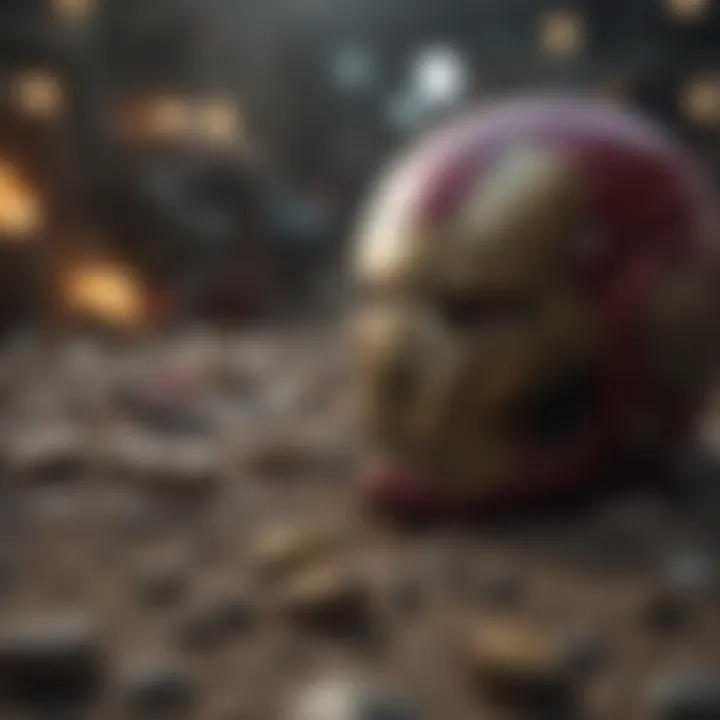
Doctor Strange introduces mysticism and alternate dimensions into the MCU. This film is pivotal as it transforms the hero's journey into one of enlightenment, showcasing how power can skew one's choices. Through its exploration of the mystical arts, audiences are introduced to a realm that will become increasingly vital as the saga unfolds. Uniquely visual and thematically rich, this film adds layers to the universe while showing the burden of knowledge.
Black Panther
Black Panther is a cultural milestone that transcends mere superhero storytelling. Set in Wakanda, it delves deep into themes of identity, race, and legacy. T’Challa's rise to the throne is not just a fight against external foes but also internal dilemmas. The film's importance lies in its rich character development and cultural representation, making it a must-watch not just in terms of the MCU but in cinema history as a whole.
Avengers: Infinity War
Avengers: Infinity War culminates years of build-up by bringing nearly all familiar faces together against a common threat. This film’s narration interweaves individual stories into a grand scale that is both breathtaking and heartbreaking. It introduces heavy themes of sacrifice, loss, and the moral dilemmas faced by each hero. Infinity War excels in establishing a balance between massive stakes and character moments that resonate deeply, proving to be a crucial turning point in the MCU.
Ant-Man and The Wasp
Ant-Man and The Wasp follows suit with a lighter tone, providing audiences a brief respite from the overwhelming stakes established in earlier films. This sequel relies heavily on the established chemistry between its leads, bringing a sense of fun and adventure. While it may feel like a tonal shift, it serves to expand the lore surrounding quantum technology, a theme that will become critical in later narratives.
Captain Marvel
Captain Marvel serves as a prequel to Infinity War, offering vital backstory on one of the most powerful heroes in the universe. This film tackles themes of identity, resilience, and empowerment. By shifting focus on Carol Danvers’ journey, it presents audiences with a more complex understanding of the character, which plays a significant role in shaping the future of the MCU.
Avengers: Endgame
Ending Phase Three on an epic scale, Avengers: Endgame provides resolution to years of storytelling. It encapsulates the triumphs and losses as characters face the consequences of their past decisions. This film is rich with emotional depth and nostalgia, serving not only as a conclusion to a saga but as a celebration of the journey that has come before. Its unique feature is the blend of time travel, sacrifice, and camaraderie, ultimately reminding viewers about the value of each hero’s journey.
Spider-Man: Far From Home
Completing the current arc, Spider-Man: Far From Home explores the aftermath of Endgame, dealing with loss, legacy, and the need to move forward. Peter Parker’s growth continues here, showing that the weight of responsibility is a heavy burden for a young hero. The movie serves as a bridge into the next phase while ensuring that the emotional core remains intact. Through humor and heart, it artfully illustrates that every ending brings new beginnings.
Key Television Series in the MCU
In recent years, Marvel has expanded its storytelling beyond the big screen, introducing key television series that have added depth and nuance to the cinematic universe. These shows, often sitting alongside the main film releases, play a crucial role in developing characters, plotlines, and thematic arcs that resonate throughout the MCU. They're not just filler; they're integral to the larger narrative. For fans and newcomers alike, understanding these series enhances the viewing experience, providing context that enriches the overall saga.
WandaVision
WandaVision was not just another Marvel show; it was a daring experiment that blended superhero action with a wonderfully quirky homage to classic American sitcoms. The series chronicles the story of Wanda Maximoff and Vision, exploring their idyllic life in the fictitious town of Westview. But beneath the charming surface lies a web of complexity related to grief and loss.
Wanda's psychological struggle unfolds through various decade-themed episodes, each carefully crafting a narrative that transitions from black-and-white to vivid colours. This series intricately weaves elements that affect the later films. For viewers unfamiliar with her backstory, WandaVision serves as a bridge, providing necessary backstory while pushing the overall plot forward. The show challenges the audience to consider the impact of trauma, communicating that even heroes have vulnerabilities.
The Falcon and the Winter Soldier
The Falcon and the Winter Soldier dives deep into themes of legacy, responsibility, and identity against a backdrop of global unrest. Following the events of Avengers: Endgame, the series examines how Sam Wilson (the Falcon) and Bucky Barnes (the Winter Soldier) navigate the world without Captain America.
This show cleverly illuminates the weight of the shield, raising questions about who is deserving of the mantle of Captain America and what it means to be a hero in today's culture. Interpersonal conflicts abound, showcasing the emotional history between the two protagonists while opposing forces challenge their views. Not only does it enrich their characters, but it also elevates the stakes for upcoming films in the MCU.
Loki
The series Loki thrusts the God of Mischief into a realm of unpredictability, and it's a fascinating exploration of identity and fate. Stemming from the Loki we met in the earlier films, this series turns the spotlight on his character, unveiling layers of complexity as he embraces a new role.
Set within the Time Variance Authority, Loki encounters alternate realities and versions of himself, challenging the audience's preconceived notions of destiny and free will. This show introduces crucial elements concerning the multiverse, effectively paving the way for future storylines within the MCU. It's a must-watch for those eager to grasp how timelines can intertwine and affect the overarching narrative.
Hawkeye
Hawkeye presents a more grounded perspective within the superhero realm, focusing on Clint Barton navigating family life while confronting the ghosts of his past. The series introduces Kate Bishop, a young archer who idolizes Clint, ultimately leading to a mentorship that feels both fresh and nostalgic.
The show effectively balances action with emotional moments, displaying the human side of a character who often stands in the shadows of more powerful heroes. As Hawkeye grapples with his past choices, viewers get a closer look at how those decisions ripple out, impacting characters and events in the larger universe.
What If?
What If? offers a fascinating entertaining angle by reimagining key moments in the MCU history. Each episode asks a simple but profound question: what if things had gone differently? From alternate realities featuring Peggy Carter as Captain America to a world where T'Challa becomes Star-Lord, the series invites viewers to explore the myriad possibilities within the multiverse.
This format allows for creative storytelling, while simultaneously engaging audiences with familiar characters in unfamiliar scenarios. Not only does it entertain but also provides insight into the characters' core motivations and relationships. It's one of those unique offerings that serves fans well in connecting dots between their beloved characters while opening doors for future MCU explorations.
Understanding these key television series adds context and richness to the Marvel Cinematic Universe, making it a more intricate and rewarding experience for viewers of all backgrounds.
Suggested Viewing Continuity
In the ever-expanding tapestry of the Marvel Cinematic Universe, suggested viewing continuity stands as a beacon for both the seasoned cinephile and the freshly minted Marvel fan. Navigating through this colossal network of films and series can feel akin to finding your way through a labyrinth; having a clear roadmap proves invaluable. Watching in a specific order not only enhances the experience but also underscores crucial character developments and thematic threads that might otherwise slip through the cracks.
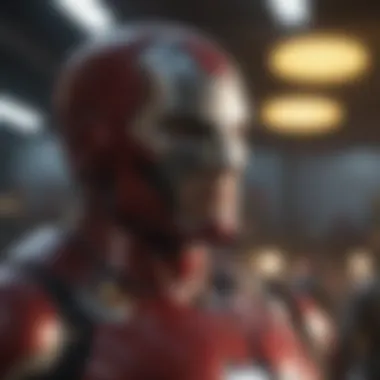
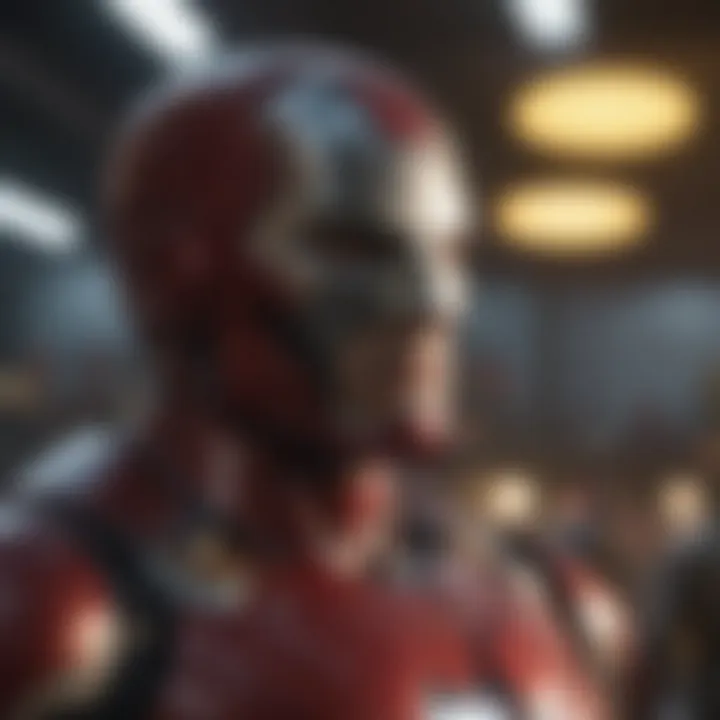
Complete Watch Order
A complete watch order is essential for fully appreciating the intricacies of the MCU. It weaves together the individual stories, allowing viewers to witness character growth and weighty plot points gradually unfold. For instance, starting with Iron Man, a hallmark of the franchise, sets the tone for Tony Stark's evolution, the moral dilemmas he faces, and the emerging conflict with threats that grow progressively more formidable.
The suggested order takes into account not just the chronological timeline of the films but also the release dates, which help to preserve the shocks and twists intended by the creators:
- Iron Man
- The Incredible Hulk
- Thor
- Captain America: The First Avenger
- The Avengers
- Iron Man Three
- Thor: The Dark World
- Captain America: The Winter Soldier
- Guardians of the Galaxy
- Avengers: Age of Ultron
- Ant-Man
- Captain America: Civil War
- Doctor Strange
- Black Panther
- Avengers: Infinity War
- Ant-Man and The Wasp
- Captain Marvel
- Avengers: Endgame
- Spider-Man: Far From Home
This order not only respects the continuity of individual character arcs but also accentuates the overarching narrative that ties together the MCU's sprawling universe.
Alternative Viewing Suggestions
For those who might have less time or are more interested in certain characters or themes, alternative viewing suggestions can be quite handy. One might prefer to follow a character-centric journey, focusing on a specific hero's evolution or specific storylines that interlink in a fascinating manner:
Character-Centric Order
- Iron Man Trilogy: Watch all three Iron Man films to fully grasp Stark's evolution.
- Captain America Arc: Begin with Captain America: The First Avenger, continue through The Winter Soldier, and conclude with Civil War.
- The Avengers Ensemble: If the ensemble cast is your thing, jump to the Avengers films and fill in the blanks of character backstories later.
Theme-Based Order
- The Infinity Saga: Watch the films that tie to the Infinity Stones, starting from Thor to Avengers: Endgame.
- Cosmic Adventures: Start with Guardians of the Galaxy and follow through with Thor: Ragnarok, moving on to Infinity War and Endgame.
"The beauty of the MCU is not just in its action and spectacle, but in the delicate threads of story that bind it together."
In summary, whether one opts for the complete watch order or an alternative method, the significant takeaway remains: to delve into the Marvel Cinematic Universe with a clear plan enhances comprehension and enjoyment. Each viewing experience can lead to different insights, enabling new fans and old hands alike to uncover layers they may have missed on their initial journey.
Impact of Marvel on Pop Culture
The Marvel Cinematic Universe (MCU) stands as a titan in the realm of modern entertainment, shaping narratives, styles, and even cultural conversations. From the streets of New York to the cosmic expanses of the galaxy, the significance of Marvel, specifically its films and series, transcends mere entertainment; it weaves itself into the fabric of global pop culture in a way few franchises have managed. The MCU not only entertains but also provokes thought regarding identity, heroism, and morality within a diverse global society.
Cultural Resonance
Marvel has an uncanny ability to mirror societal issues through its storytelling. Take the Black Panther, for instance. This film wasn't just another superhero flick; it ignited discussions about race, representation, and African culture in a blockbuster format. Characters such as T'Challa and Killmonger embody complex ideals that resonate deeply with audiences experiencing cultural and racial nuances in their lives.
In portraying characters with multifaceted backgrounds, Marvel creates spaces for audiences around the world to see parts of their own stories reflected through larger-than-life personas. There's a familiarity in the struggles and triumphs these heroes face that is so relatable. It’s not just about saving the world; it's about grappling with familiar human experiences such as loss, redemption, and belonging. This narrative depth gives Marvel movies enduring significance.
Moreover, Marvel's use of humor and wit in its narratives, while entertaining, often leans on deeper cultural references that resonate particularly with younger audiences. In a world grappling with rapid changes, combining levity with cultural commentary fuels conversations about societal expectations, identity, and community. As audiences engage with these stories, they contribute to an ongoing dialogue about progress and change at a cultural level.
Influence on Filmmaking
The impact of the MCU reaches far beyond narrative; it has reshaped the very architecture of filmmaking and audience engagement. The interconnectedness of Marvel's films, where each piece contributes to a larger narrative puzzle, introduced a new model of storytelling that many other studios have attempted to replicate. Thus, we see an uptick in franchises and cinematic universes, where the goal is to create expansiveness over singular stories.
The strategies Marvel employs in marketing, production, and audience interaction have set benchmarks in the industry. The timeline promotion before the release of films has redefined how studios cultivate anticipation. Themes and visuals from one film often reappear in another, leading audiences to knit together their own narratives in a way that fosters loyalty and engagement like never before.
Additionally, the rise of prestige television series, such as WandaVision and Loki, illustrates how Marvel has blurred the lines between film and TV. These series dive deeper into character exploration and intricate stories, which has motivated networks and creators everywhere to rethink the scope of serialized storytelling.
Marvel's influence on the industry has created a roadmap for success built on collaboration, interconnectedness, and audience participation.
As we consider the legacy of the Marvel Cinematic Universe, it becomes undeniable that its impact stretches far and wide. The franchise's ability to resonate culturally while influencing filmmaking practices showcases its remarkable place within contemporary society. This intersection of narrative and artistry will undoubtedly inspire future creators in unimaginable ways.
Future of the Marvel Cinematic Universe
The future of the Marvel Cinematic Universe (MCU) is not just a prospect; it represents the evolution of storytelling in cinema. Current and future fans alike are highly invested in what’s to come, as each new release bolsters the intricate web of narratives established over years. Understanding this future is crucial not only for keeping up with the latest in entertainment but also for appreciating how these developments frame past narratives. With new characters introduced and long-standing arcs reaching their resolutions, the MCU is steering into thrilling waters.
Upcoming Releases
Marvel has laid out an ambitious slate of upcoming releases that promise to deliver fresh stories while expanding upon beloved characters. With a focus on both theatrical releases and streaming offerings, fans have much to look forward to.
Some notable films and series on the horizon include:
- Blade: The much-anticipated reboot that ushers in the darker side of the MCU.
- Fantastic Four: A long-awaited introduction of Marvel's First Family into the universe.
- Avengers: The Kang Dynasty: This promises to be a high-stakes adventure that ignites key confrontations with one of Marvel's most formidable villains.
- Echo: A character from the Hawkeye series gets her own spotlight, diving deeper into her story.
- Deadpool 3: This entry will be notable not just for its humor but for how it integrates into the established MCU.
Fans are eager to see how these upcoming projects will intertwine with existing characters and storylines. The anticipation around casting announcements and plot synopses builds a palpable excitement, as fans debate, theorize, and speculate on the connections.
Predicted Developments
As the MCU continues to unfold, several trends and potential changes present themselves. While nothing is set in stone, certain developments seem probable.
- Expansion of the Multiverse: Following the events seen in Doctor Strange in the Multiverse of Madness and Loki, it’s reasonable to expect that the multiverse will play a greater role. This allows for exciting possibilities, such as alternate versions of superheroes and unexpected team-ups.
- Character Focus: As witnessed with characters like Kamala Khan in Ms. Marvel, there’s a shift towards introducing younger heroes who will carry the proverbial torch. This opens the door for legacy characters and deeper explorations of personal narratives.
- Thematic Depth: With global events influencing storytelling, expect to see more nuanced themes reflecting societal issues. Marvel has previously intertwined humor and action with serious topics; future narratives may take this even further.
- Integration with Disney+: Streaming has revolutionized how stories are told. Upcoming series are likely to provide essential backstories that enrich the films, emphasizing the importance of watching every installment within this vast universe.
- Cross-Platform Storytelling: Marvel may continue blurring the lines between cinema and television, developing arcs that stretch across various forms of media, thus enriching character development and audience engagement.
"The future is big—it's a playground for a multitude of stories yet to come, and every viewer has a front-row seat."
With these predictions, the MCU stands to not only entertain but to challenge, provoke, and engage its audience in new and unexpected ways. The continual growth and expansion of the MCU ensure that it will keep fans guessing, theorizing, and, most importantly, watching.







